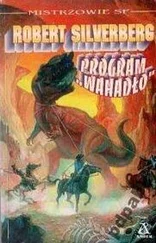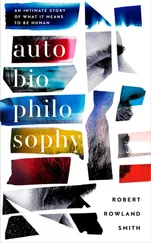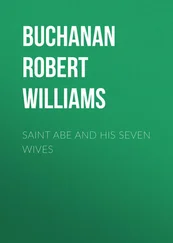1 ...6 7 8 10 11 12 ...17 It is a policeman. He is tall and burly, and has a ginger beard. My guilty conscience tells me that he has come to arrest me. But no. He starts saying something about people trying to reach me on the phone. Members of my family have been trying to get hold of me, he repeats, ringing the receiver off the hook . As a last resort they have phoned the police station in Oxford, to send a policeman round to wake me up. Is he annoyed or amused? The phone continues to ring. I am still naked.
I head back into the bedroom to pick it up. It is Simone’s aunt, Lydia. Simone has gone into labour. It is bang on the due date. We decided it was best to have the baby in London, as there was family near by, while I set up our new flat in Oxford. So Simone is staying with another aunt, Jo, in Primrose Hill. Yesterday evening, when Simone and I spoke on the phone – she in London, I in Oxford – she assured me that no birth-giving was in the offing. Hence perhaps the depth of my sleep. Now Lydia is forcing information at me down the line, and I am trying to drink from the fire hose. Simone is in the obstetrics department at University College Hospital, on Huntley Street, in Bloomsbury, London. Lydia gives detailed instructions on which entrance to use. I can’t picture the place or take it in. To me, a suburban boy, central London is a black box.
How to get from Oxford to London at three in the morning? There will be no trains to Paddington station at that hour. I don’t have a car. The only alternative is a taxi, but I’m unemployed and have literally no money. The idea of taking a taxi to London is preposterous. I wouldn’t take a taxi into town, let alone from city to city. The cost defies calculation.
After due dithering, I decide to call Simone’s parents’ house. I explain that I can’t get to the hospital, and ask to borrow the money. But I call with trepidation. I am the student dropout whom they have met only twice. At the first meeting, almost a year ago, I was just the summer fling. The second meeting was at Waterloo station, where the parents greeted us off the train. Simone was heavily pregnant with my child, and I was looking everywhere except into their eyes. I’m convinced that, to them, I’m the layabout who sponged off their oldest daughter in Perpignan and got her pregnant. My credit rating isn’t high. But in this hour of need, as ever, they are gracious. They are active members of their Catholic church and do good in the community. The money is pledged. I look for my cheque book. I know the cheque will bounce, but that won’t come to light for a few days. I fumble through the Yellow Pages, hands now shaking, and call a minicab firm.
As soon as I inform the driver of my mission, he steps on it. He drives like the wind. I have never been driven so fast in a car. He says that if the police stop us, they’ll understand. They’ll probably put you in the squad car and drive you themselves, he joshes: blue lights flashing, sirens blaring.
With the M40 behind us and the Marylebone flyover bearing us aloft through west London like a toy car on a toy bridge, and now passing Euston station, the driver asks me for directions. I know the name of the hospital. I know the street. But no more. He is from Oxford: London’s not his manor either. The well in the driver’s-side door has no A to Z. Smartphones are yet to be invented. And so, having reached London in about forty minutes, we get mired in the squares and one-ways of Bloomsbury for as long again. It is like being in a maze. He’s looking out the driver’s side, I’m looking out the passenger window; both of us are scrutinising the buildings for signs.
At length, we locate the red-brick hospital, gloomy as a castle in the 5 a.m. light. I write out the cheque for forty-three pounds only, slam the door shut, and bound up the stone stairs. Simone is on the bed, pushing hard. The baby comes, a purple and white larva, slippery and warm and as charged with life as a battery. This is the creature we have been referring to as ‘Sweet Pea’ for all the time that she has been furled up like a fern in the womb. Her very first act in the world is to sneeze, to blow away the prehistoric goo and enter human time.
What does it mean to bring new life into the world? How is the act of birth connected to the act of sex that preceded it? Obviously there is a biochemical chain of cause and effect, but the two events can feel so unrelated that they might as well have occurred on different continents. How can we make sense of taking up a new place in the schema of generations? For at that moment, when Sweet Pea came out of the tunnel and in the light became Anna, Simone was no longer just a daughter but also a mother. I was no longer just a son but also a father. Although Simone and I were both young – just twenty-two – we found ourselves instantly elevated one branch up the family tree, as if on a genealogical ski lift. I felt the sense of being caught in the onward rush of life. That is part of what it means to be a human being, and it is the answer that this chapter will develop.
There is a supplementary question, concerning our relationship to the unknown. I touch on this question because in that room in UCH as the dawn was coming up on an early autumn day in London, with the baby arriving in all its hotness and strangeness as if down a chute from Venus, I felt as if I knew nothing at all. Or rather, the experience was so enveloping that any understanding was blocked.
Down and out in Oxford and Croydon
I had met Simone at a summer job in July 1986, the year before Anna’s birth. We were both working at a call centre for British tourists who run into difficulties abroad. We the staff, most of us language students, would liaise with the local services overseas. We would speak French, Spanish or Italian on the tourists’ behalf whenever their rental car had a prang or someone broke a leg. Simone had finished her degree and was about to take up a one-year teaching position at the University of Perpignan, in the south of France. I had completed two of the three years of my English degree at Oxford, and was disaffected. I couldn’t engage. My plan – my non-plan – was to throw in the towel.
There was another reason for my lowness. Some months earlier, I had broken up with my girlfriend of three years, Astrid. Actually, she had broken up with me, and I was still smarting. In an old Mini, Astrid drove down from Birmingham to Oxford with her identical twin sister to deliver the news. We faced off like actors on set in my high-ceilinged ground-floor room, with me trying to persuade her to stay. While the sister waited in the car, we had the best sex that we had ever had. The sex didn’t change her mind. It was a closing ceremony.
I wanted a girlfriend to fill the gap. To redeem myself, in fact. When Astrid left me it felt like I had failed. By finding somebody else, I would prove that I wasn’t a failure. I would show Astrid that I was a worthy boyfriend and that she had made a terrible mistake. And so I dated a physiotherapist who had done an ultrasound on my knee after I’d dislocated it, not for the first time, playing cricket. It was the reactivation of a longstanding injury – no pun intended – which, later in life, would make it impossible for me to walk down stairs without pain. I sat in my underwear at the John Radcliffe Infirmary as she smeared the paste around my patella. She pressed the cold metal head against my skin. We caught each other’s eye. But when I cooked her dinner, she claimed to have had a big lunch and left most of it. That seemed to stand for something. We didn’t see each other again.
Earlier that term there had been a party in the house, in my friend Simon’s room next door to mine. I had been dancing with Elizabeth, Simon’s supposed girlfriend. After the party had wound down and I had gone back to my room, she knocked on my door and got into my bed. I told her that I couldn’t betray Simon. Once I had denied her three times, she walked out and wouldn’t speak to me again. She left her sweater in my room, an oversized magenta V-neck by Oscar de la Renta that I kept for years.
Читать дальше












![Helen Rowland - The Widow [To Say Nothing of the Man]](/books/752764/helen-rowland-the-widow-to-say-nothing-of-the-man-thumb.webp)